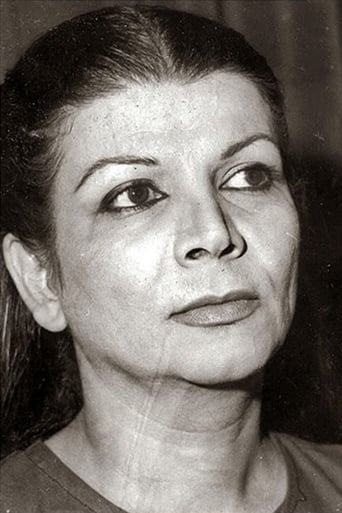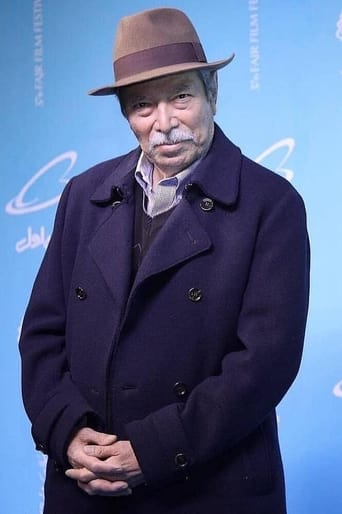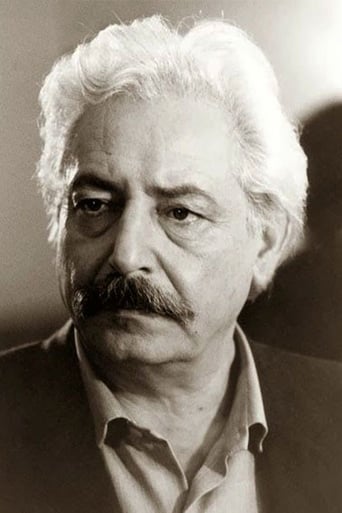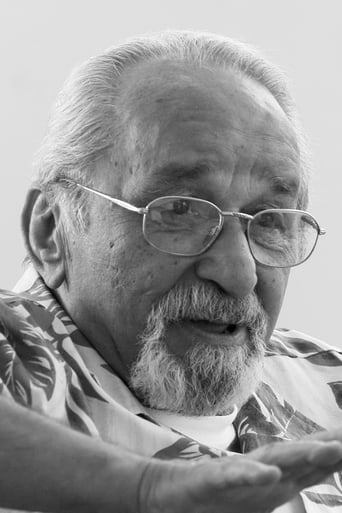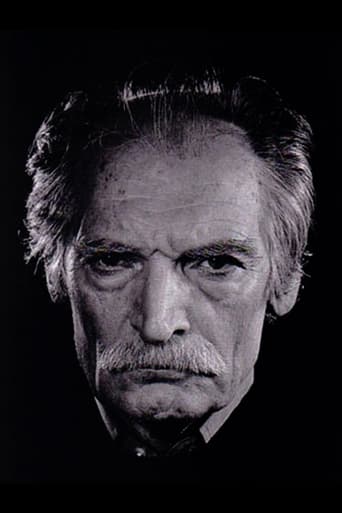Incannerax
What a waste of my time!!!
Laikals
The greatest movie ever made..!
CommentsXp
Best movie ever!
Bob
This is one of the best movies I’ve seen in a very long time. You have to go and see this on the big screen.
Pierre Radulescu
This movie recalls Pasolini in mind, and also Parajanov.The subject is as simple as it can be: there is a village, poor and primitive, Hassan is the only one possessing a cow in the village, the cow dies, Hassan gets mentally insane.Is Hassan mad? Well, obviously. A man who believes that he is no more himself, but his cow, that's madness on all accounts.Madness? Hassan was living in his own universe ignoring the real world. But here's the point: Hassan had always lived in his own universe - he and his cow. A whole system of memories: events lived together. Natural phenomenons lived together and having a particular significance for them: a whole system of codes and signals. Was it full moon? It meant the cow was thirsty.This universe could not disappear once the cow was no more. The memories were still in place. The codes and signals were still in place. Was it full moon? It meant the cow was still thirsty.So Hassan was just defending now this universe of him; only his universe was no more fit with the world. Hence, the madness.Usually, when the beloved one is no more, the survivor is tempted to imagine that the other is still somewhere, not far. You go to the cemetery and speak to your beloved one, who is buried there. Hassan was trying something more forceful: to imagine that he, Hassan was somewhere, not far, and that the cow was here, in his body, instead of him! I know how it sounds, but it was Hassan's way to keep his universe.Meanwhile life was going on in this village. A bunch of clay houses surrounding a small dirty pool. Old men chatting at some kind of a tea house, old women attending silently the daily events and waiting for the outcome, the village idiot tortured by kids for mere distraction, the nightly incursions of neighboring villagers: just a small closed universe around a small dirty pond.Faced with the sudden madness of Hassan, the community comes to help, with great kindness and patience, to discover that help is sometimes useless and that kindness and patience have narrow limits.A tragic ballade telling us that some things happen just because that's their way to happen and nobody could change anything.
clevelandrachel
The Cow, Gaav (1969) is the second feature film by director Dariush Mehrjui. It was the second film to be financed by the Shah of Iran but promptly banned after completion when the Shah felt its portrayal of simple village life in Iran gave the wrong impression to outsiders. The film was smuggled out of Iran in 1970, and subsequently won "critics choice" at the Venice Film Festival.The Cow (originating from a novel by Iranian author Gholam-Hossein Saedi) portrays the obsession, loss of faith and demise of a poor rural village that loose their single salable commodity - a cow. Hassan, played by Ezatollah Entezami (who received best actor at the Chicago Film Festival), has a face that vividly captures his physical and emotional change after a breakdown when he becomes the cow. Mehrjui uses theater actors with "compelling faces" as key elements in the cinematography (Feridun Ghovanlu), as did the Italian Neo-realist.The film explores the looming fear of a foreign invader as the villagers come to believe Hassan, in his cow-like state, will be captured in cross-border raids from rival tribes. Politically this is reminiscent of the Shah's constant allusions to the neighboring "Arab threat" over oil. While set in traditional, rural Iran, Mehrjui shows an alternative view of Iran where collective fear and poverty can cycle in hopeless desperation. Viewers of The Cow are left to question the very root of human dignity.
Rob Brown (cinephiliac)
This simple tale is open to interpretation, which can be considered positively or otherwise – it perhaps hearkens back to folk tales which are passed down orally, and contain simple plots which are then the basis of discussion. In this way it is easily remembered and its meanings can be deciphered afterwards by those who watch it. However it also means that the film seems overlong for the most part, pre-occupied with repeating sequences and behaviour again and again, and even drawing out the fairly dramatic ending which arguably diminishes its strength. Perhaps it would have been better presented in a shorter runtime, or a more heavily stylised manner such as that of the title sequence. Nevertheless, regardless of enjoyment there are many threads of discussion that can be considered.One of the key questions raised by the film is that of the mental stability of the protagonist, Hassan, whose loss of his animal will bring about his somewhat metamorphosis into the same creature. At the start of the film he is seen behaving extremely strangely as he leads his cow back to town, exultantly dancing around it as he washes and caresses it. This man is not behaving as the other people (such as the children) do. Hassan is mirrored somewhat by the town idiot, who is berated by the other people, and even locked up so as to keep Hassan himself from learning the secret of his cow's death. This mirroring, and Hassan's transformation, make it possible to consider the village's relationship to both Hassan and his cow – certainly throughout neither are treated with respect, and the film's end highlights this.Perhaps Mehrjui, the film's creator, comments on the actual importance of the cow and this man's relationship, an idea that is supported by the title of the piece.
Mozjoukine
While it's director went on to do better work and this film marks a return of cinema to the post Shah Iran, sitting through it is an effort.We lose out both ways with the basic technique and unshaded characters of underdeveloped cinema (this one is like an early Yilmas Guney but nowhere near as good) made pretentious by what we must assume is opaque symbolism on the Kafka model.This village overfills it's quota of idiots.Best thing is the title background of the man walking a cow, reduced to an abstract.
